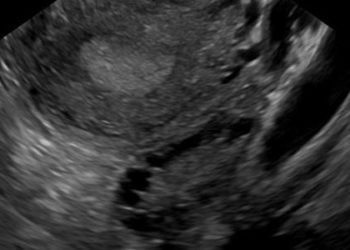Colonic byproduct may decrease long-term weight gain
1. Propionate, a product of dietary fiber fermentation by colonic microbiota, was found to increase levels of peptide YY (PYY) and glucagon like peptide-1 (GLP-1) in humans, which regulate satiety in the brain.
2. Long-term supplementation with propionate prevented weight gain and reduced intra-abdominal fat accretion.
Evidence Rating Level: 2 (Good)
Study Rundown: Increasing evidence suggests that diet, gut microbiota, fat storage, and neurohormonal signaling all play major roles in appetite regulation and the development of obesity. Animal studies have revealed that the microbial fermentation of dietary fiber in the colon produces short chain fatty acids, such as propionate, which stimulate the release of gut hormones like PYY and GLP-1. These hormones are known to relay satiety to the appetite centers of the brain. Thus, the purpose of this study was to determine whether propionate would stimulate gut hormone release in the human colon and whether this would decrease appetite and prevent long-term weight gain in humans. In human colonic cell lines in vitro, propionate indeed increased both PYY and GLP-1 levels. A similar effect was seen when patients were provided with a form of oral propionate, and this translated into a nearly 14% reduction in food intake. Furthermore, compared to patients who took a placebo, patients who consumed the oral propionate long-term for 24 weeks had decreased weight gain (0% vs. 17% with >5% weight gain above baseline), decreased intra-abdominal adipose tissue distribution, and a trend towards reduced intrahepatocellular lipid (IHCL) content. Interestingly while weight gain prevention was maintained, PYY and GLP-1 levels did not remain elevated in the long-term group.
While previous studies on this subject were conducted in animal models, this study directly looked at propionate’s effects in humans. Additionally, the long-term results were compared to a control group that consumed an identical compound to the study group but without propionate, allowing for us to reason that the results can be attributed to propionate’s effects alone. However, this study only investigated weight gain over a period of 24 weeks and could not report whether body weight was maintained even after the study period. Thus, additional studies are necessary to determine the more long-lasting effects of propionate. Overall, this study suggests that even in humans, propionate may increase gut hormone levels and impact satiety to prevent long-term weight gain, making its use a potential tool in weight management strategies.
Click to read the study in Gut
Relevant Reading: The gut microbiota and obesity: from correlation to causality
In-Depth [cell study, randomized controlled study]: This study was the first to determine propionate’s effects on weight gain in humans. The participants were of both genders, aged between 40-65 years, free of significant clinical disease, and without a recent drastic weight loss and were randomly assigned to the control or study group. First, it was found that propionate at a concentration of 400 mmol/L increased PYY and GLP-1 secretion from human colonic cells in vitro by up to 3-fold (p<0.001) and 2.4-fold (p<0.001), respectively. The authors manufactured an inulin-propionate ester, an orally ingested substance found to result in a 2.5-fold increase in daily propionate production by the colon. Using this substance, food intake was reduced in 20 volunteers by 13.8%, from 1175 kcal (CI95% 957 to 1392) to 1013 kcal (CI95% 816 to 1210), and plasma PYY and GLP-1 levels were increased compared to controls that consumed an inulin-control substance (p<0.05 for both). In a group of 60 volunteers who were randomized to consume the inulin-propionate ester or inulin-control for 24 weeks, the inulin-propionate ester group was found to have decreased weight gain (0% vs. 17% with >5% weight gain above baseline, p=0.033). Furthermore, the study group had a decreased change in distribution of intra-abdominal adipose tissue compared to the control group at the end of 24 weeks (p=0.027). Finally, the study group had a trend for reduced IHCL content (p=0.061), and interestingly, in volunteers who met the diagnostic criteria for non-alcoholic fatty liver disease, there was a significant reduction in IHCL content after inulin-propionate ester supplementation (22.1% (CI95% 7.7 to 36.6) vs. 15.9% (CI95% 5.2 to 26.5), p=0.038.
More from this author: Men who pay for sex at higher risk of acquiring STIs, Milk consumption paradoxically linked to increased risk of fractures and mortality, Incidence of esophageal cancer subtypes vary drastically globally and by gender, Modest alcohol consumption liked to poorer semen quality, Minimum unit pricing may be an effective alcohol control policy in the UK
Image: PD/Wiki/NCI
©2014 2 Minute Medicine, Inc. All rights reserved. No works may be reproduced without expressed written consent from 2 Minute Medicine, Inc. No article should be construed as medical advice and is not intended as such by the authors, editors, staff or by 2 Minute Medicine, Inc.








